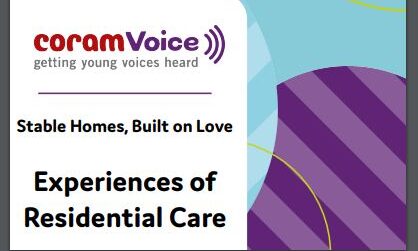10 Oct 23
Coram Voice have collaborated with AYPH on a small-scale engagement project focused on understanding the health risks faced by young people who have been in care.
Young people who have been in the care of a local authority are, on average, at greater risk of poorer health outcomes than their peers.
This project involved the setting up of a youth panel for discussions co-facilitated by young people themselves. This was a chance to hear the views and experiences of care leavers about health, accessing healthcare services and health inequalities in order to understand the challenges better.
Many of the challenges relate to general issues young people in care face which made everything – including healthcare – more difficult. In addition, they spoke about issues that might contribute specifically to health outcomes. This included a lack of health literacy, the impact of mental health problems, experiences of healthcare, finance as a barrier to accessing healthcare services and bureaucracy within the healthcare system.
The young people made a series of recommendations specifically in relation to reducing health inequalities for care experienced young people.
Recommendations
- Offer financial help with prescriptions.
- Make care leavers more aware of the support that is available.
- Consider ways to alert healthcare systems to the needs of care-experienced young people.
- Improve training and education for healthcare providers.
- Improved targeted mental health support offer for care leavers.
Read the full report here
Find out more about the work of AYPH here
In an interview with BBC London News, Andrew Dickie, Head of Services at Coram Voice, says thousands of vulnerable 16 and 17-year-olds have not been looked after in accordance with appropriate child-protection laws. In fact, homeless young people have been steered away from going into care and instead put into cheaper hostel accommodation as a way for councils to save money.
“Each time that happens to a child that’s outrageous and it needs to stop.” Andrew Dickie, Head of Services at Coram Voice
This BBC interview follows the case of a young person named Charlotte, who in 2023 took Lambeth Council to court. The case settled in her favour, with the council accepting that she should have been taken into care under section 20. Most young people aged 16 or 17 years who are accepted as homeless by a local authority should be taken into care under section 20 of the Children Act.
If you are a young person seeking support for accommodation, then Coram Voice may be able to help you. Contact us on the Coram Voice Advocacy helpline.




